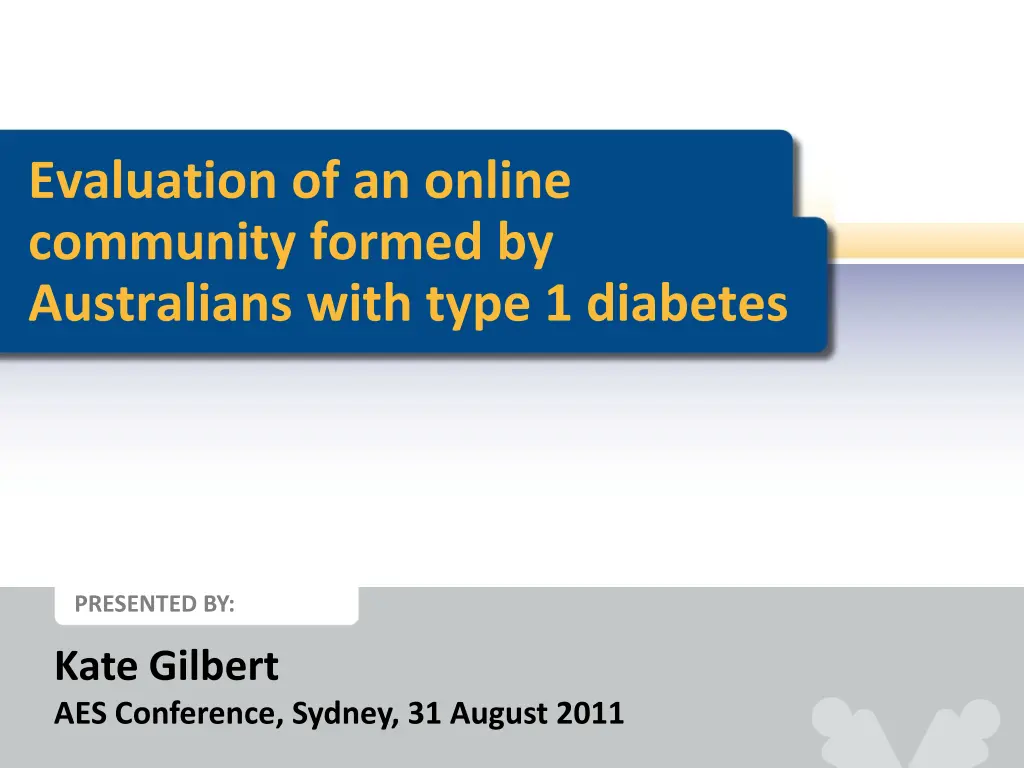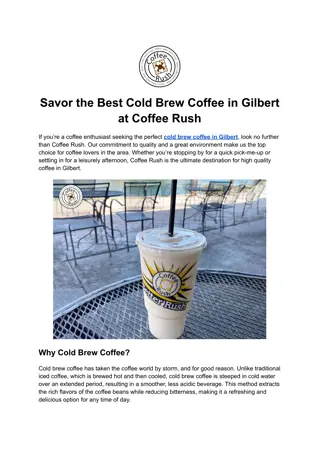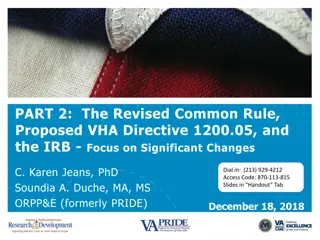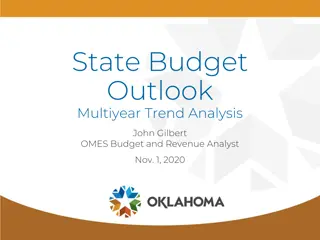
Evaluation of an Online Community for Australians with Type 1 Diabetes
"Explore the evaluation of an online community dedicated to supporting Australians with type 1 diabetes, focusing on peer support research, disease management, and program improvement. Discover the benefits of peer support and the developmental evaluation approach in this insightful analysis."
Download Presentation

Please find below an Image/Link to download the presentation.
The content on the website is provided AS IS for your information and personal use only. It may not be sold, licensed, or shared on other websites without obtaining consent from the author. If you encounter any issues during the download, it is possible that the publisher has removed the file from their server.
You are allowed to download the files provided on this website for personal or commercial use, subject to the condition that they are used lawfully. All files are the property of their respective owners.
The content on the website is provided AS IS for your information and personal use only. It may not be sold, licensed, or shared on other websites without obtaining consent from the author.
E N D
Presentation Transcript
Evaluation of an online community formed by Australians with type 1 diabetes PRESENTED BY: Kate Gilbert AES Conference, Sydney, 31 August 2011
The Evaluand: Reality Check Online community - Type 1 diabetes 12 years old 1,558 registered members Accredited by Health on the Net Six volunteer moderators Rules: share experiences not medical advice Peer support program
Type 1 Diabetes Neither preventable nor curable Can occur at any age Complex daily management by patient includes: o calculating and adjusting insulin doses o testing blood glucose levels o treating hypoglycaemic events o administering insulin injections o counting carbohydrate content of all food
Evaluation Objectives 1. Provide information to the managers of the program to assist them improve it, increase its reach and understand what key stakeholders most value about it 2. Contribute to the growing field of peer support research experiences from this long-standing, peer-led and self-sustaining program 7
Literature Review: Peer Support (Fisher, 2010) Four core functions of peer support: Assistance in applying disease management in daily life Emotional and social support Linkage to clinical care Ongoing and proactive support (Boothroyd & Fisher, 2010) Benefits include clinical improvements (Heisler, 2006; WHO, 2008), promoting complex health behaviours (Elstad, 2010) 8
Literature Review: Evaluation Approach Developmental perspective Pluralistic Approach Value Explication Success Values ( vretveit) Internal evaluator Owen s (2006) guidelines 9
Lit Review: Online Research Methods Content analysis common (eg. Lasker et al 2005) Reach: bias in results is too great and too multiplicitous to give value to estimations of the reach (Burns et al, 2008) Lithium Technologies (2009) internal health factors Online focus groups. Benefits: flexibility, time to reflect (Stewart & Williams, 2005; Walston and Lissitz, 2000) Ethical conduct - no consensus (Gaiser and Schreiner, 2009), observing online activities for research, without informed consent, may be unethical(Lawson, 2004) 10
Lit Review: Evaluating Peer Support WHO (2008): peer support programs should be evaluated objectively, and results [be] used to guide further service improvement Fisher (2010) and Hawe et al (2008) on complex interventions: functions separate from content or specific local delivery methods 11
Evaluation Approach Developmental perspective Pluralistic evaluation approach Prioritised stakeholders' values and sought divergent views. An internal evaluator was used - resulting ethical issues addressed. 12
RESEARCH METHODS PRESENTED BY: 13
Methods Planning and Engagement: Ethics approval Ethical issues with internal evaluation Estimating Reach through Website Use Data Content Analysis - one week snapshot Online Focus Groups independent facilitator Health Professional Survey online, anonymous Program Managers Workshop 14
KEY FINDINGS PRESENTED BY: 17
1. Reach & Content Analysis 311 active participants in last 6 months = only 20% registered members Unknown number of observers Content analysis: 23 topics discussed Internal health (Lithium Technologies, 2009) Interactivity: 15 messages / discussion thread Responsiveness: median 1 hour: 14 minutes response time New members : 11/week : 7 never contributed after 3 months 18
2. Online Focus Groups 6 focus groups - over 2 weeks 41 participants Mean age 37.2 years (range: 22 - 60 years) 26% male Diabetes duration mean 17.5 years, (1-46 years) 39 (93%) resided Australia, 2 (5%) UK; 1 (3%) NZ Grouped by common patterns of usage 19
2. Online Focus Groups: Success Values Peer Support definition (Boothroyd and Fisher, 2010) Core component Subcategories from definition New subcategorIes Sizeable, active and diverse community Active and effective management Open access online delivery Local relevance Peer-led Problem solving Not defined 1. Acceptability of program delivery features 2. Assistance in applying diabetes management in daily life Real life experiences of living with diabetes Learning Identifying key resources Improve management of diabetes Empathetic listening Feel supported Encouragement Self-reflection 3. Social and emotional support Stay motivated Connection & interaction with peers Coping with social and Sense of community emotional barriers Assist others 20 No sub-categories 4. Ongoing , proactive support
3. Health Professional (HP) Survey 81 Respondents Average age 44 (21-64) years; 5 (19%) male 67 (83%) Australia 34 (42%) rural or regional area 77% nurses 32 (40%) they or immediate family has Type 1 diabetes 21
3. HP Survey : Success Values for People with Diabetes Use of the Program New subcategories Categories Subcategories from Definition Intentional/Planned program delivery features eg. not moderated by health professionals Realised program characteristics eg. Welcoming & supportive nature of community Specific clients groups to whom it is acceptable Acceptability of program delivery features Parents/carers gain insight into living with diabetes Others experiences of living with diabetes Assistance in applying diabetes management Improved clinical management of diabetes Problem solving in daily life Source of key resources, information and learning about diabetes Feel supported Empathetic listening Emotional and social support Connection with peers Coping with social or emotional barriers Parents/carers feel supported Linkage to clinical care 22 Ongoing support (Boothroyd and Fisher, 2010)
3. HP Survey: Success Values from Own Use of the Program Professional Development Learning about applying diabetes management plans in daily life Source of information and learning about diabetes Reflection and learning to improve practice Health professionals felt supported [Visiting Reality Check] helps me understand what it is like to live with Type 1 diabetes in the real world. Enhances my knowledge therefore helps me with my clients [sic] care. 5 23 23
3. HP Survey Success Values from Own Use of the Program (cont d) Consumer Consultation Access to the consumer perspective [I visit Reality Check] to increase my awareness and knowledge about issues effecting young adults with type 1 and how they would like these issues to be addressed. 68 Feedback on health services [I hope to get out of visiting Reality Check] information about what consumers think/feel about diabetes services 62 24
4. Health professionals under-estimate the benefits people with diabetes value Personal experiences of living with diabetes Connection & interaction w peers Identifying key resources Problem solving Learning Improve mgt of diabetes Empathetic listening Cope with social /emotional barriers Feel supported Encouragement Stay motivated to reach their goals Self-reflection Sense of community Assist others Source: Gilbert, K., (2010) unpublished thesis: Evaluation of an Online Community formed by People with Type 1 Diabetes, The University of Melbourne. 25
Utilisation Changed monitoring from reach to internal health Success values shaped promotion of the program Observers - key stakeholder group Training and orientation of program managers 26
Implications for Evaluation Online research methods, selected and applied judiciously, are an effective way to engage stakeholders of online programs. Many concepts from 'offline' research, both methods and program functioning and definitions, remain relevant to online programs and their evaluation. 27
Acknowledgements All volunteers and members of the Type 1 Diabetes Network, especially: Susan Greenbank Kerry Vinall Natasha Reddrop Colleen Clarke Melinda Seed Other key collaborators: Dr Sarity Dodson Marie Gill Rosemary McKenzie 28
Sources and more information www.d1.org.au or kategilbert@bigpond.com 29











